Legal-psychological research methodology
DOI:
https://doi.org/10.25057/21452776.20Keywords:
Abduction, evidence paradigm, semiotics, guilt, responsibility, act, subjectAbstract
The abduction, also called in this paper evidence paradigm is a way to proceed that moves from effect to cause or from experience to thought. As methodological alternative, between induction and deduction, is an exhibition about the ways of thinking proposed in the logic and semiotics work by Charles Sanders Peirce. Both the abduction as the evidence paradigm are related to the method used by Freud (called Psychoanalysis) and Voltaire procedures, which are an invaluable tool for the interpretation to capture the truth in a process of psychological and legal research. The logic of the evidence is associated with the Latin voice, investigare, which means, trace, to be on the track. The events preceding the evidence paradigm have been raised to the level of hunting knowledge of the early hunters, explorers, the oracles and the jurisprudence of Mesopotamians (4000 BC), the Philology (Linguistics) and the Medical Semiotics, the pictorial art of the seventeenth century, like the handwriting, going through philosophers such as Voltaire, Diderot, Montesquieu, among others, arriving at Morelli. In this perspective, we might say that psychoanalysis is a discipline with much more daring that Behaviorism, because it does not want to know about this other side of the issue, which for him is not scientific, the scientific for behaviorism is to keep only what is directly observable. The psychoanalyst, however, believes that science will be the sustainability of what is said about the unconscious. Finally, the word is the common factor to the device created by Freud and the one used by Law, especially in the new accusatory penal system.
Author Biography
Elkin Emilio Villegas Mesa, Institución Universitaria de Envigado, Colombia
Psicólogo-Psicoanalista, Docente Programa de Psicología, Facultad de Ciencias Sociales, Institución Universitaria de Envigado, Colombia
ORCID: https://orcid.org/0000-0002-7294-4612
Correo electrónico: elkinvillegas@gmail.com
References
Bernfeld, S. (1973). El concepto de interpretación en psicoanálisis, en el psicoanálisis y la educación antiautoritaria. Barcelona: Barral.
Chandelle, R. (2004). Más allá del Código Da Vinci.Bogotá:Robinbook.
Chen Sham, J. (2001). Culpa y responsabilidad moral endos cuentos de Mario Benedetti. Revista Letras de Deusto, No. 92, vol. 31, julio-septiembre 2001, Bilbao, Universidad de Deusto, p. 211.
Freud, S. (1906). El psicoanálisis y el diagnóstico de los hechos en los procedimientos judiciales. Obras completas, Madrid, Biblioteca Nueva.
Francoise, V. (1956). Novelas y cuentos. México: Ediciones de la Universidad de Puerto Rico.
Lacan, J. (1984). La ciencia y la verdad. En: Escritos 2, 10ª ed., México, Siglo Veintiuno, 1984, p. 343.
Ramírez Ortíz, M. (2005). Clío y Psique. Ensayos sobre Psicoanálisis e Historia. La Carreta Editores E.U., Medellín, 203 p. ISBN: 958-97449-7 -4.
Ricoeur, P. (1999). Historia y narratividad. Barcelona: Paidós.
Pardo, N. (1995). Introducción a la semiótica. Signo y cultur. Bogotá: Facultad de Ciencias Sociales y Humanas de Unisur.
Villegas, E. (2007). Avatares políticos y transferenciales. Una pregunta sobre la culpa. Ensayos de psicoanálisis y derecho. Medellín: Uniciencia_________( 2007). Cura del sentimiento de culpa. Discurso académico, jurídico y psicoanalítico. Epistemología-Ética-Clínica. Medellín: Uniciencia.
How to Cite
Downloads
Languages:
esDownloads
Published
Issue
Section
License
Copyright (c) 2020 Psicoespacios

This work is licensed under a Creative Commons Attribution-NonCommercial-ShareAlike 4.0 International License.

| Article metrics | |
|---|---|
| Abstract views | |
| Galley vies | |
| PDF Views | |
| HTML views | |
| Other views | |




